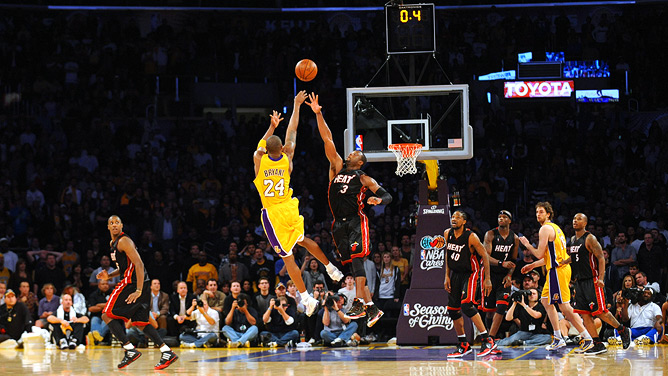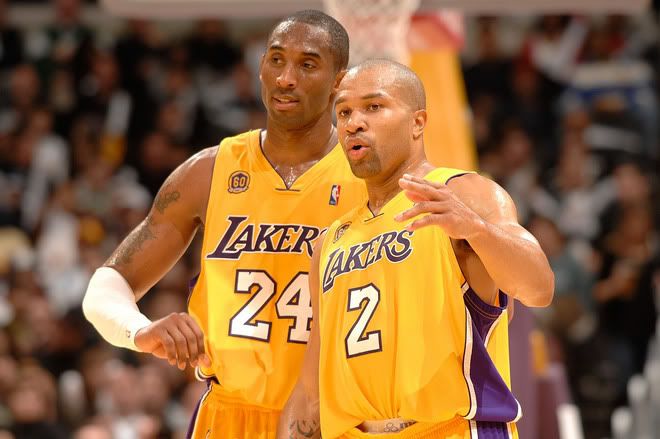(As appeared in
sportskeeda.com)
Sports writers have waxed eloquent about him, yet Kobe Bryant continues to be hot property for continued dissection. A reason for this is perhaps because Kobe’s personality is like an onion- nobody has quite managed to peel through its many layers. He still retains that enigma which makes him very attractive to journalists.
I have told myself to desist writing about NBA greats because there are more competent people already doing so. I ought to rather focus on the development of basketball and its players in the Indian subcontinent. But like many others, I too have succumbed to the charms of the “black mamba”.
People have tried to understand Kobe Bryant- the person- through a number of ways. Some document his work ethic, others look at the injuries he has suffered throughout his storied career, a fewer still attempt to deconstruct his personality by analysing his sexual assault case. My attempt is to understand Kobe using what I call the “tangential approach.”

On 4th December 2009, the Los Angeles Lakers played host to the Miami Heat in a regular season tie that went right down to the wire. With the Lakers trailing by 2 with 3.2 seconds to go, everybody in the arena knew that the ball would go to Kobe to hit the game winner. He obliged in remarkable fashion.
In the Brownian motion unfolding in the seconds before the inbound pass, Kobe managed to break away from a very persistent Dwayne Wade to receive the ball. Turns out (as he later admits in the post game interview), he got the ball farther out then he would have liked- at around 26 feet from the basket. A jab step to the right and a couple of dribbles to the left later he found that Wade was still stuck to his hip. With time almost running out, Kobe has no choice but to pull up for an off balance three pointer falling away to his left. Miracle of miracles, he banks it in and is soon engulfed by his teammates.
A lucky shot perhaps? Well, Kobe conceded as much immediately thereafter (“It was the luckiest shot I have ever taken”). But a few of days later he was heard singing a different tune: “I used to do a lot of mountain biking as a kid…so I had to learn how to balance myself on my left leg while in motion.”
A bizarre explanation don’t you think?
Logic. According to Wikipedia, the study of logic asks the question: “how do we know what we know?” Central to this study of logic is the ability to make logical links. These links vary from the straightforward to the seemingly absurd and help us rationalize the apparently unconnected events that take place in our lives.
Kobe Bryant can make these links. If you dissect his mind, rather than swirling thoughts, you would probably find a highly ordered catalogue of experiences, failures, successes, learning, videotape, memories, criticism, newspaper comments, praise and historical events.
Even if he was wrong about the mountain biking as being the reason behind him making such an impossible shot, he sure as hell wasn’t wrong in trying to find such a far-fetched connection.
Great players are known for eccentricities that few others like us can comprehend. Kobe Bryant is one such mastermind. His brain is like a pensieve (if you’ve read Harry Potter you’d know what I’m talking about) which has the ability to sift through millions of different ideas and thoughts and extricate the exact reasons for his actions. Again I could be talking in the air, as I am reminded of Derek Fisher’s remarks in one interview. Fisher, who along with Bryant have formed a potent 1-2 punch winning 5 championships along the way- knows his two guard better than most and says that people always think they “know” Kobe Bryant when actually then don’t know “s**t”.

For Kobe Bryant, the sub conscious and conscious have merged into what is now one cohesive memory. It’s almost likes he “googles” his own brain for a viable answer to any question that defenses may throw at him.
To further elaborate: If you were to ask Kobe “how do you somehow always manage to find a way to the basket weaving around several opposing defenders to take that perfect shot?” or “How is it that your game is almost like a choreographed dance where you seems to know exactly when to do what?” His answer would probably sound something like this: “Read more books.” Again this would seem like the weirdest response- but that’s Kobe. To him this is as obvious as two plus two equals four. After all he is known to be one of the brightest minds currently playing the game.
The reason Kobe is able to explain each and every move or action of his is because he plays the game so consciously. Nothing happens by chance in the land of Kobe. So when he says “read more books”, he probably is referring to how reading can cultivate an imaginative mind which in turn enables him to visualize all the possible situations that he may encounter in a game. These situations he then practices until he achieves near perfect muscle memory. Not exactly two plus two equals 4 is it?




